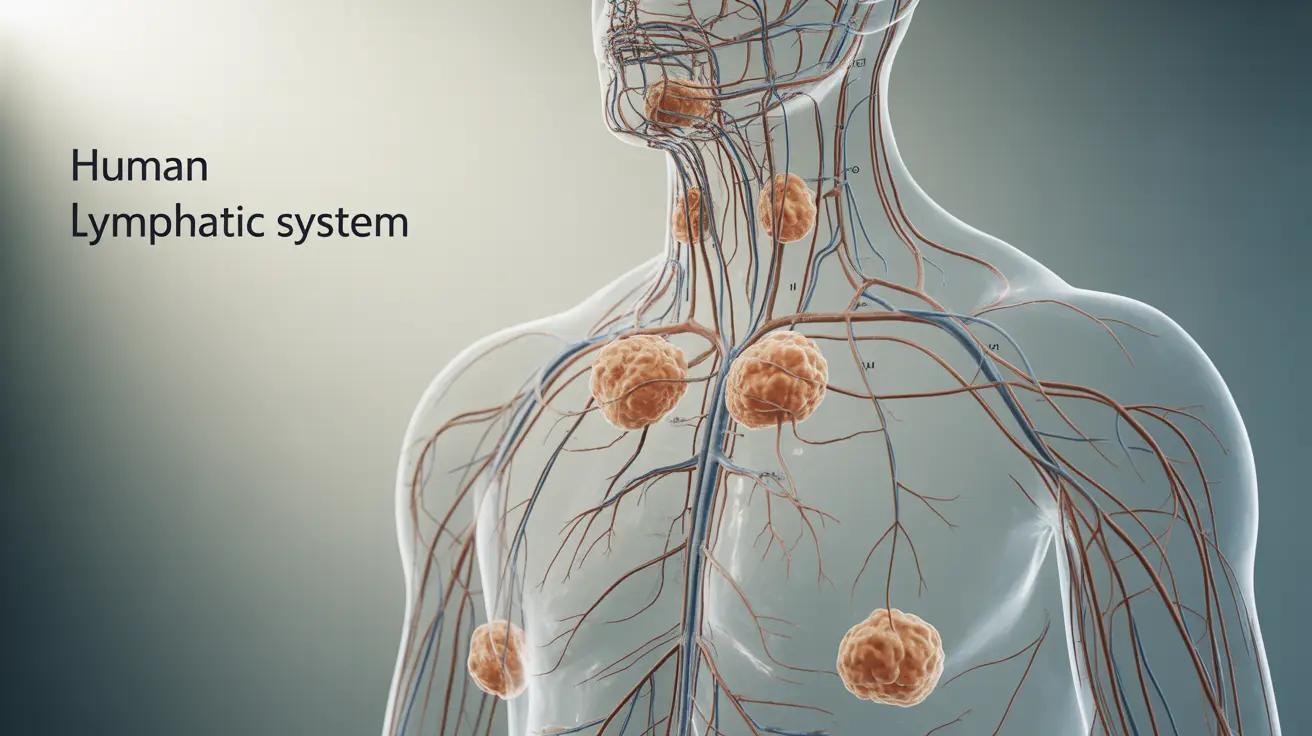Swollen lymph nodes are a common medical concern that can affect people of all ages. These small, bean-shaped structures are vital components of your immune system, and their enlargement often signals that your body is fighting an infection or dealing with other health issues. Understanding the causes and knowing when to seek medical attention can help you manage this condition effectively.
While swollen lymph nodes can be concerning, they're usually not a cause for immediate alarm. In most cases, they indicate that your immune system is working properly to combat an infection or illness. However, it's important to recognize when swelling might indicate a more serious underlying condition.
Common Causes of Swollen Lymph Nodes
Lymph nodes can become swollen for various reasons, with infections being the most common trigger. Here are the primary causes:
Infections
- Upper respiratory infections
- Strep throat
- Ear infections
- Tooth infections
- Skin infections
- Viral illnesses like mononucleosis
Immune System Disorders
- Lupus
- Rheumatoid arthritis
- HIV/AIDS
- Immune deficiency disorders
Other Medical Conditions
- Certain types of cancer
- Medication reactions
- Allergic responses
- Chronic inflammatory conditions
Identifying Concerning Symptoms
While most swollen lymph nodes are harmless, certain characteristics may indicate a need for medical evaluation:
Warning Signs
- Nodes larger than 1 inch in diameter
- Hard or rubbery texture
- Fixed position (doesn't move when touched)
- Persistent swelling lasting more than 2-4 weeks
- Accompanying fever, night sweats, or unexplained weight loss
Treatment Options and Home Care
The treatment for swollen lymph nodes depends on the underlying cause. Many cases resolve on their own with simple home care measures:
Self-Care Measures
- Warm compresses to reduce discomfort
- Over-the-counter pain relievers
- Adequate rest and hydration
- Gentle massage around the affected area
Medical Treatments
- Antibiotics for bacterial infections
- Anti-inflammatory medications
- Treatment of underlying conditions
- Specific therapies based on diagnostic findings
Prevention and Maintenance
While you can't always prevent lymph nodes from swelling, you can take steps to maintain overall health and reduce risk factors:
- Practice good hygiene
- Maintain a healthy diet
- Get regular exercise
- Manage stress effectively
- Stay up-to-date with vaccinations
Frequently Asked Questions
What are the most common causes of swollen lymph nodes, and are they usually serious?
Most cases of swollen lymph nodes are caused by common infections like upper respiratory infections, strep throat, or ear infections. They're usually not serious and resolve once the underlying infection clears up. However, persistent swelling should be evaluated by a healthcare provider.
How can I tell if my swollen lymph nodes are caused by infection, an immune disorder, or something more serious like cancer?
The context of other symptoms, duration of swelling, and characteristics of the nodes can help determine the cause. Infections typically cause tender, moveable nodes and may be accompanied by fever or cold symptoms. More serious conditions often involve firm, fixed nodes that persist for weeks, along with symptoms like unexplained weight loss or night sweats.
What home remedies or treatments help relieve pain and swelling from swollen lymph nodes?
Warm compresses, over-the-counter pain relievers, and gentle massage can help relieve discomfort. Rest and staying hydrated are also important. However, these measures address symptoms only; treating the underlying cause is essential for resolution.
When should I see a doctor for swollen lymph nodes, and what warning signs should I watch for?
Seek medical attention if lymph nodes are larger than 1 inch, feel hard or fixed in place, persist for more than 2-4 weeks, or are accompanied by fever, night sweats, or unexplained weight loss. Also consult a doctor if nodes become red, tender, or warm to the touch.
Can allergies, stress, or certain medications cause lymph nodes to swell, and if so, what should I do about it?
Yes, allergies, stress, and some medications can cause lymph node swelling. If you suspect these factors, consult your healthcare provider to confirm the cause and determine appropriate management. They may recommend adjusting medications or addressing underlying stress or allergies.




